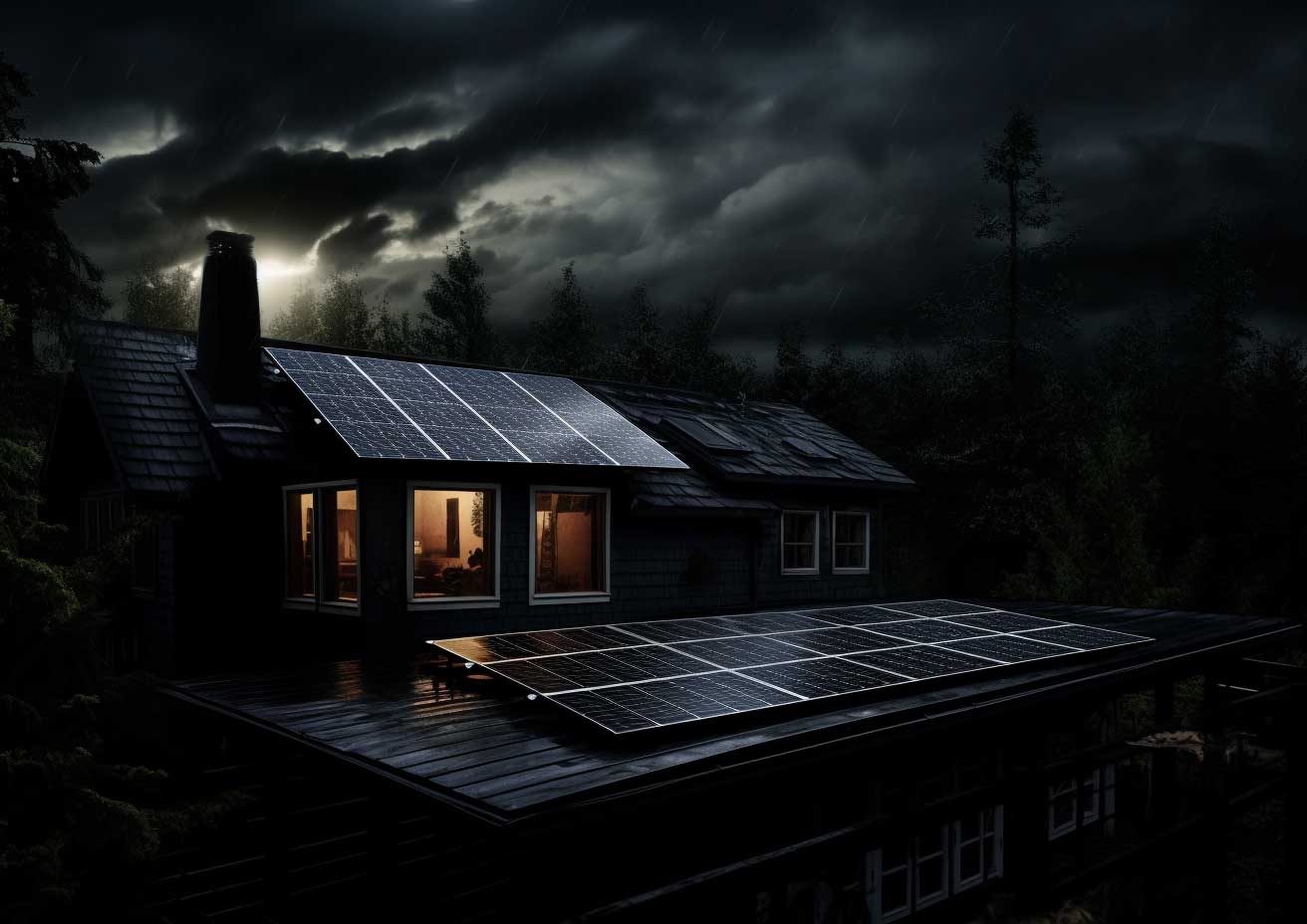If you’re reading this you more than likely have at least considered solar. Solar is a smart move for your home. It’s a renewable energy source that is good for the planet and your wallet. At the same time, you’ll have reliable power that is available when your utility company can’t provide it. Two of the biggest players in the solar industry are Sunrun and Tesla. If you’re investigating which company you should choose, Sunrun vs Tesla, look no further than this article! We’ll detail what you need to know to make the right choice for your home.
Sunrun vs Tesla company profiles
While it may not be the biggest factor in your decision-making process, if you’re comparing companies it always helps to know about their backgrounds and what they sell.
Sunrun
Sunrun Inc was founded in 2007 in San Francisco, California. The company is known as the pioneer of the solar as a service business model. Solar as a service makes solar energy systems more affordable for homeowners. Instead of buying the system outright, customers pay low upfront costs and a monthly fee for the solar energy without owning the solar panels. Since Sunrun first developed solar as a service, many companies have followed suit.
Sunrun sells residential solar systems, solar battery storage, and EV charging specifically for the Ford F-150 Lightning. Sunrun does not produce its solar panels and sources most of its materials from third-party suppliers. Sunrun actually sells the Tesla Powerwall through Sunrun Brightbox.
Tesla
Tesla Inc is first and foremost an electric vehicle company but since its acquisition of SolarCity in 2016 Tesla has been rapidly growing in the solar space. Tesla is now considered one of the top companies in the solar industry. According to Tesla, when SolarCity was acquired it was more of a solar as a service business but has since moved to only offering cash purchases and loans.
Tesla sells several models of electric vehicles, EV charging equipment, the Tesla solar roof, solar panels, and the Tesla Powerwall, which is energy storage. Tesla manufactures its own solar panels.
How does Sunrun compare to Tesla for solar panels?
Tesla has some of the most efficient solar panels on the market, while it is hard to gauge Sunrun solar panels because they purchase theirs from different third-party suppliers.
There are three different types of solar panels: monocrystalline, polycrystalline, and thin-film solar panels. Monocrystalline panels usually have the highest energy efficiency and power capacity out of the three kinds. Monocrystalline panels are made out of solar cells that contain silicon wafers. When sunlight hits a monocrystalline panel, the cells absorb the solar energy and create an electric field, which generates power.
Polycrystalline panels are like monocrystalline panels except for one major difference, monocrystalline panel cells contain a single crystal of silicon, while polycrystalline panel cells contain silicon fragments that are melted together.
Thin-film solar panels use single or multiple layers of other types of semiconductor material, such as cadmium telluride (CdTe), copper indium gallium selenide (CIGS), amorphous silicon (a-Si), and gallium arsenide (GaAs).
Monocrystalline panels are the most expensive, yet the most efficient of the three types of residential solar panels. Polycrystalline panels are cheaper but less efficient. Thin-film solar panels are the easiest to install but are not always the best option due to their inefficiency.
Tesla only sells monocrystalline and polycrystalline, while Sunrun sells all three.
How do the warranties for Sunrun and Tesla solar panel systems compare?
Tesla offers a 25-year warranty on the panels while their installation is covered by a 10-year warranty.
Sunrun also has a 10-year warranty on installation. As for the panels themselves, it will depend on the manufacturers of the panels that end up in solar installation since Sunrun does not manufacture their own solar panels. A residential solar panel manufacturer’s warranty for equipment is typically 10-25 years.
If you lease your panels from Sunrun they offer a 25-year leak protection warranty. Sunrun’s policies are more robust when you lease your panels instead of buying them outright so make sure you get the full details of your warranty if you decide to go with Sunrun.
Sunrun vs Tesla Reviews
Sunrun and Tesla are similar when it comes to reviews and have similar issues when it comes to customer service complaints. Both companies have their share of positive and negative reviews.
Tesla Energy has a 3.8 out of 5 stars Consumer Affairs review, while Sunrun has a 3.7 out of 5 stars review.
Here are some positive and negative reviews for Tesla:
“Great experience all around. No high pressure sales tactics like other Solar companies. Offered better solar array size for the cost as compared to others. Was able to ask questions and get help when needed through the site or calling my project manager. They did all the proper permitting (city and county) and all that I needed to do was submit HOA paperwork.” – Patrick of Purcellville, VA via Consumer Affairs
“Literally the worst customer service experience of my life! Nothing positive to say! Signed up in March, got an email a month later saying the design was taking longer than expected. Then, last weekend, cancelled my order with not even a vague explanation! My neighbor also signed up around the same time had his order canceled a day before mine after waiting 3+ months as well. Terrible!” – David B. via Yelp
Here are some positive and negative reviews for Sunrun:
“Sunrun is awesome. They have updated/repaired our system before we even knew we had a problem. Everyone there is very knowledgeable & always answered our questions without belittling or speaking down to us.They are the best with their customer service. I wish more companies treated us with the respect they have…” – Cheryl M. via BBB
“Sad to see them with a booth in Costco. I am tempted to stand there and warn anybody who shows any interest that SUNRUN is a terrible company who does not care about their customers. I know I will get a courtesy response to send them my name and address, but the bottom line is they will not do right by you. I have a system that had the inverter break twice. Both times, I found this out by checking my production and notifying Sunrun. One of the times it was out for 2 months!!! They will hide behind the agreement that says they will meet yearly production or refund you, but far be it from them to compensate you for months of NO PRODUCTION!!!” – M of Redlands, CA vis Consumer Affairs
Sunrun vs Tesla Pricing
Tesla prices tend to be cheaper than the national average. You can expect to pay about $2.50 per watt. The national average is about $2.75 per watt. Sunrun does tend to run a little higher at about $2.75 per watt, which is closer to the national average.
Tesla can afford to keep their prices low due to name recognition from electric vehicles and Tesla Motors. They don’t need to work as hard or spend as much on marketing as Sunrun does to draw customers to their website.
Although Tesla is cheaper than Sunrun, many homeowners still prefer Sunrun due to their varied financing options, including solar as a service.
Tesla customers can purchase their solar system outright or take out a loan with Tesla through their Cash Purchase and Loan Purchase options. The Tesla solar loan works like any other solar loan. If you choose a Tesla solar loan you can claim the solar tax credit.
Sunrun offers four main pricing plans: Monthly Lease, Full Lease, Full Purchase, or Monthly Loan. The most popular plan is the Monthly Lease, which is the solar as a service option. With the Monthly Lease option, you’ll have low upfront costs. Sunrun owns the solar panels. This means Sunrun is responsible for the solar system installation, system monitoring, maintenance, and insurance. You won’t be able to apply for federal tax credits since Sunrun owns the panels. With the Full Lease option, you’ll pay just one upfront single payment for the same options as above. With this solar lease option, Sunrun owns the solar panels and you won’t be eligible for federal tax credits. In the Full Purchase option, you’ll own the solar panels and pay for them outright. In the Monthly Loan option, you’ll own the solar panels and avoid large upfront costs. You’ll pay a monthly payment to the loan provider. In this option, you’ll be able to claim the solar investment tax credit (ITC).
Sunrun vs Tesla incentives and rebates
The federal solar Investment Tax Credit (ITC) was extended in 2021 and was once again updated in August 2022. The credit can be claimed on federal income taxes for a percentage of the cost of a solar panel installation. You still have time to claim the credit at the high percentage of 30 percent. Those who install a solar photovoltaics (PV) system between 2022 and 2032 will receive a 30% tax credit. That credit decreases to 26% for systems installed in 2033, and then to 22% for systems installed in 2034.
According to the U.S. Department of Energy, the ITC cuts the cost of a rooftop by more than $7,500 for an average system.
When it comes to the ITC both companies have solar systems that are eligible for the tax credit. Yet, you are only eligible for the credit if you own the solar system. All Tesla financing options give the buyer ownership of the solar panels. If you go with Tesla you’ll be eligible for the ITC.
Some of Sunrun’s financing options are eligible for the ITC, while others are not. Since most of Sunrun’s customers opt for a solar as a service payment option, they don’t own the system but Sunrun does. If you opt for this option you cannot claim the tax credit and Sunrun does. One way Sunrun generates revenue is by selling tax credits to banks.
State organizations and utility providers also provide incentives and if you are eligible depends on each program’s criteria.
What is better Sunrun or Tesla solar?
Sunrun and Tesla are both good options for your home solar installation. It is hard to decide between the two since they are similar in many areas, but their differences are what will help you make the right decision for your home.
Sunrun is more expensive than Tesla if you’re looking at the price of your panels per watt. Sunrun does make solar more affordable, though, with their solar as a service option. While Tesla does offer a loan option, the solar as a service model is not available with them. If you want to take advantage of the ITC, both companies have similar financing options for owning solar panels.
Tesla solar panels tend to be more efficient, but Sunrun does have quality panels. You just may not know who the manufacturer of your panels is during the solar panel system installation process.
The companies have similar customer reviews and warranties. You may have to investigate further and inquire with each company to see what their financing options look like for you individually. Tesla and Sunrun offer slightly different pricing depending on your location and your solar system.
No matter which company you go with, a solar panel system is a terrific addition to your home. Choosing solar power has many benefits, including the opportunity to become energy independent and less reliant on your utility provider, clean energy use and a smaller carbon footprint, and a way to combat rising energy prices among many other benefits.
In the end, the best solar company for your residential solar panel installation is the one that listens to you and can give you the solar system you need, not what gives the company the biggest profit margin. While the choice between Sunrun and Tesla may already be a difficult choice, you may want to consider WattLogic, a solar installer that can install your solar system wherever you are in the United States. From Southern California to North Carolina, we can install your home solar panels. WattLogic provides a solar turnkey package that provides all the financial benefits and quality solar panels.
WattLogic is brand agnostic, which means it doesn’t just offer one brand of solar panels but instead provides the best panels for your home and your preferences. Click here to speak with a WattLogic Residential Solar Expert now.




